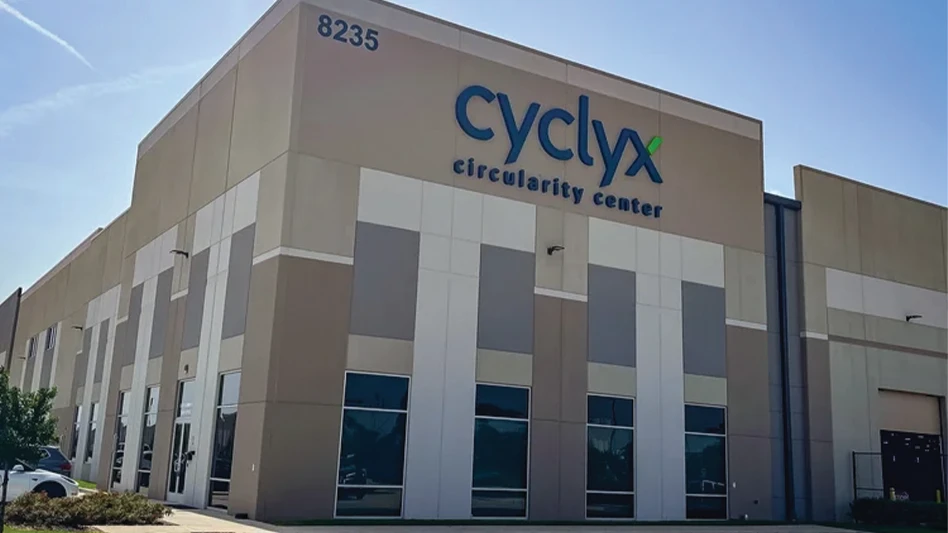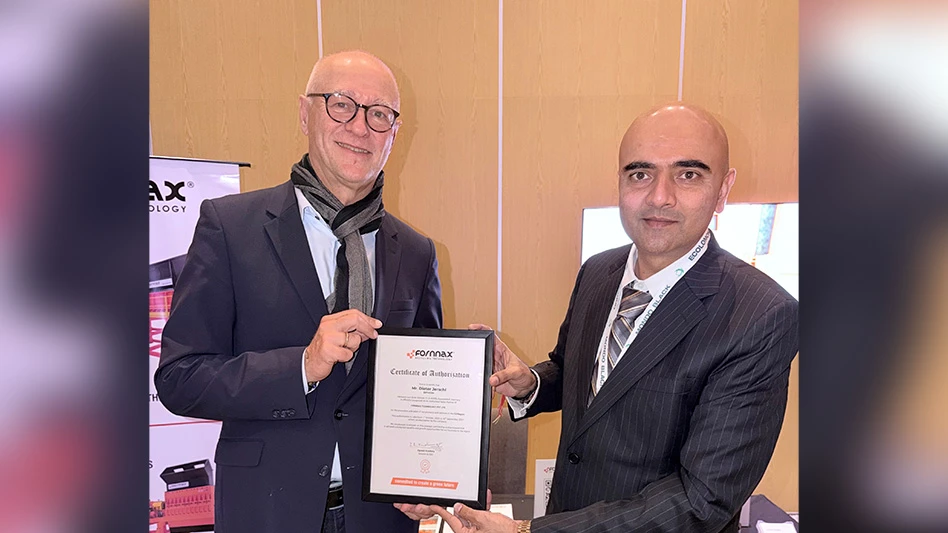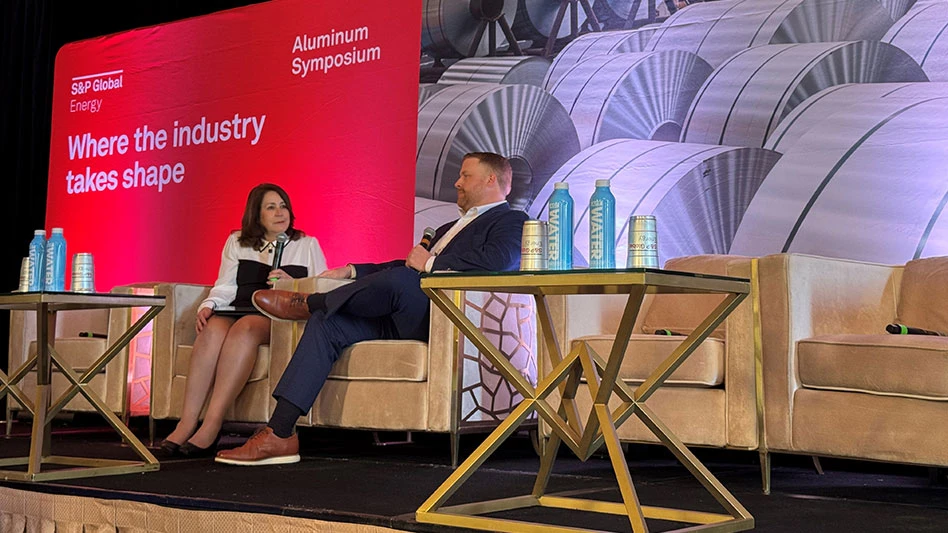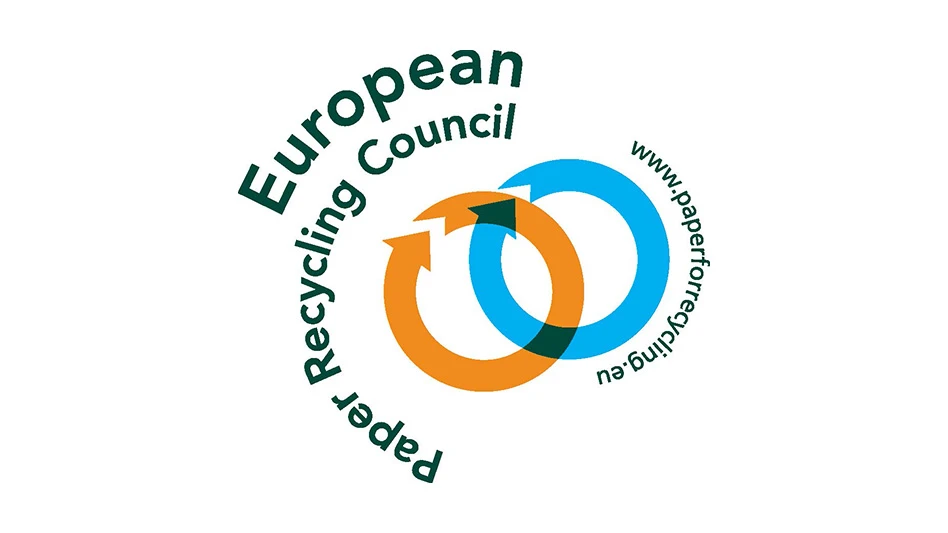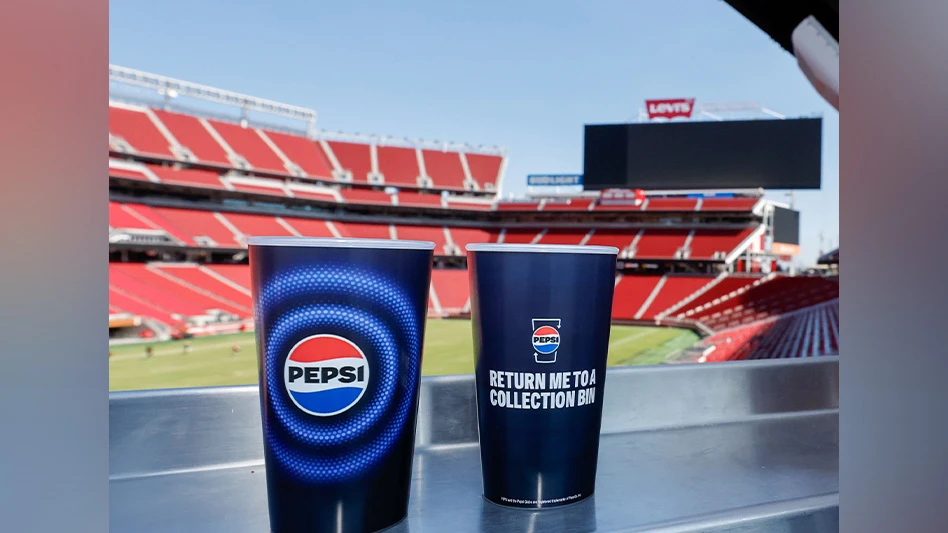
Photo courtesy Stadium Auto Parts
Hyman Wright founded Stadium Auto Parts in Commerce City, Colorado, in 1945 when he bought an auto garage that sold gas and shifted its focus to selling auto parts. The company eventually expanded with a parts warehouse, run by just two employees.
In 1971, Hyman’s son Norman Wright took over as head of the company, which he has continued to grow. In March of this year, Stadium Auto Parts, which has 30 employees, opened a 38,000-square-foot auto dismantling facility in Commerce City that can handle 120 cars per month, soon to expand to 180 cars monthly. The facility merges the operations of two sites the company owned previously. The goal was to increase capacity, efficiency and space.
Wright doesn’t plan to slow down, however, setting goals to grow the company in the next three to five years by increasing how many cars Stadium can process, expanding Stadium’s staff and increasing revenue.
“We're seeing growth right now because there is a supply chain shortage and our parts are available,” Wright says. “A lot of the new parts are on backorder for three, four months. So, more collision and mechanic shops are looking to us to get cars back on the road.”
A digital start
Wright says Stadium purchases most of the cars it processes through salvage auctions held in Denver. About six auctions occur per week, he says, selling about 3,000 cars total. Stadium purchases complete vehicles to avoid issues with stolen parts and chop shops. The company also makes purchases through private insurance companies.
Stadium typically purchases cars that are 10 years old or younger. This way, the parts still have some value and the risk of breaking down because of their age is minimal.
Once the vehicles have been purchased, they are brought into the new facility to be cataloged. Workers scan a car into Stadium’s digital inventory system called Pinnacle Professional from CCC Information Systems in Chicago. This includes the cars’ makes, models, years and colors, as well as photos of them, to include in its inventory.
The parts are cataloged using Hollander Interchange by Solera, Minneapolis, a system that allows Stadium to find the parts and displays how much the part has sold for. Stadium tracks the vehicles by how long it takes to sell the parts to recover their costs, called inventory turnover.
“It offers a full gamut of management tools to run the operation,” Wright says of Pinnacle. “We track each vehicle by stock numbers. Our management reports include how long the car has been here, how much we sold off the car and a projection of what parts we'll sell.”
Full-service dismantling
After a vehicle has been inventoried, it is taken to an 8,000-square-foot dismantling building, which has seven bays. There, one of eight dismantlers is given a list of the parts that need to be removed from the car. One dismantler can dismantle a car in half a day on average and is paid based on performance and how quickly and efficiently a vehicle is dismantled, Wright says.
Each dismantler is equipped with power and pneumatic tools, such as power saws and impact wrenches, from various suppliers. They also use car lifts and cranes to assist in the process.
Stadium is a full-service dismantling company that specializes in newer model cars. Wright says this positions Stadium well for the future relative to self-service auto recyclers because it can handle vehicles with modern technology.
While self-service companies require clients to come in and remove parts from cars themselves, the primary benefit of Stadium’s business model is the ease of access it offers to garages. The company will buy the car, dismantle it and sell the parts separately, so clients don’t have to come in and do it themselves.
“A shop is not going to send down one of their employees to pull apart the vehicle; it's too expensive,” Wright says. “So, we provide an ease of access that eliminates that burden.”
The company says it offers labor, extended warranties and lifetime warranties for the parts it sells. The warranties it offers are part of policies formed by Premium Recycled Parts, Louisville, Kentucky, an organization made up of 140 independently owned auto recyclers in the United States. The purpose is to match or exceed the warranties offered by original equipment manufacturers.
Wright says the largest portion of the business Stadium does is with the collision and mechanical industry.
“The best way to recycle is reusing the parts of the product because it requires no more natural resources. A lot of our transactions are indirectly with the insurance company on the collision side,” Wright says. “So, shops purchase the parts to lessen the severity of the accident and for the delivery or shipping of the parts.”
When a vehicle is being processed, Wright says Stadium has a commodities manager who contacts scrap processors near the facility to sell their commodities. Every month, the manager determines which businesses offer the best price. The company typically sells 400 to 500 vehicles every three to four months. Once sold, Stadium will crush the vehicle for the processors to pick up.
Stadium works with six scrap processors in the Denver area. Typically, the company sells to All Recycling Inc., Western Metals Recycling or Evraz Recycling, all in Denver. Stadium also sells to companies that may not have shredders.
“It all depends on the price of the commodity at the time we're selling and who offers the best price and service,” Wright says.
He adds that before selling the car, Stadium removes commodities such as aluminum and copper and sells them to other scrap processors. When the car has been completely stripped, it is sent to the shredder.
Moving forward
Wright has ambitious goals for his facility moving forward and plans to hire 20 more employees to meet growth in the next three to five years. First, he says Stadium is aiming to increase its volume from 120 cars per month to 200 cars and its production of 1,500 parts to 3,000 parts. He also has a financial growth goal of $15 million in revenue.
However, Wright does see obstacles ahead of the company related to how quickly the automotive market is changing. The biggest obstacle his company faces is the increase in hybrid and electric vehicles. Wright says they will become a big part of the market in 10 years. Despite this, he says, his company is preparing now for the shift.
“What we're doing is taking courses on how to handle electric batteries, electric cars, how to test the parts and determine what we need to save on them,” Wright says. “We’ve got to make sure our staff is properly trained and that the batteries are properly handled, so it doesn’t end up injuring a worker or damaging the operation as a result of a fire.”
Stadium is taking online classes through the Automotive Recyclers Association, Manassas, Virginia. He says the dismantlers also use rubber mats and gloves to remove electric batteries from the vehicles. The batteries are then stored in a container away from the facility to ensure that if there is a fire, it won’t affect operations.
Wright says he believes in the next 10 years, vehicles will shift away from consumer sales and focus more on wholesale. This is because the vehicles are becoming so technologically advanced that only professional repair businesses will be able to work on them.
Latest from Recycling Today
- NAW secures injunction blocking enforcement of Oregon’s EPR law
- WM opens 2 new MRFs in Ontario
- International Paper to close Washington box plant
- Cascades exits honeycomb packaging, partition business segments
- Customer focus drives Bantam Materials’ success
- ATI reports slimmer profits
- Papilo acquires Allwood Recycling in UK
- RecycleNation helps people find nearby recycling facilities
